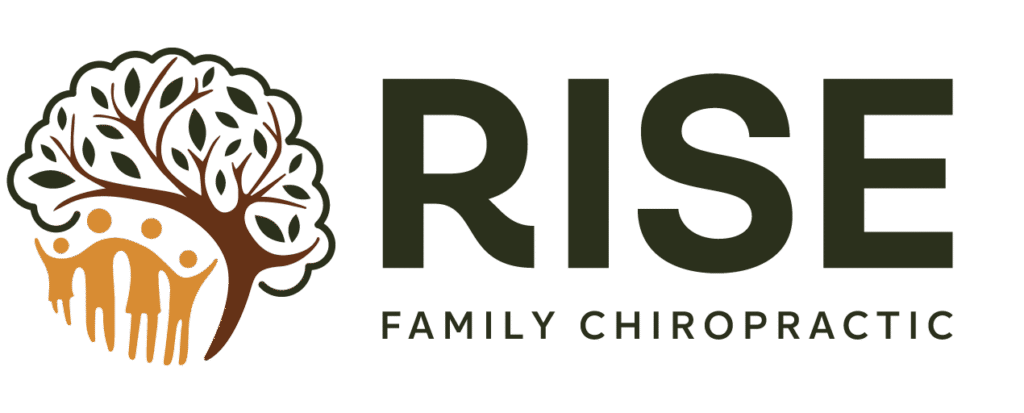Pregnancy is often described as a miracle. And it truly is. But for many women, that miracle comes with a weight that feels almost unbearable: exhaustion.
If you’ve found yourself moving through the day like you are walking through quicksand, wondering how you’ll find the strength to keep going, you’re not alone. Fatigue in pregnancy is incredibly common, but that doesn’t make it easy. And it doesn’t mean you have to simply accept it as your new normal.
Dr. Stefan reminds moms often, “Fatigue is your body’s way of asking for more balance. It’s a signal, not a flaw.”
Why Energy Feels So Drained
Pregnancy places extraordinary demands on your body, and it’s no surprise that your system sometimes struggles to keep up. A few of the biggest culprits behind exhaustion include:
- Blood volume surge. By the end of pregnancy, your body is circulating nearly 50% more blood than before. That extra workload on your heart can leave you feeling depleted.
- Hormonal rollercoaster. Hormones like progesterone are essential for sustaining pregnancy but can also act as natural sedatives, making drowsiness hard to fight.
- Metabolic drain. Your body is working like a 24/7 construction site, building a new human being. Even when you are resting, it’s not really at rest.
- Interrupted sleep. Between discomfort, frequent bathroom trips, and worry-filled nights, restorative sleep can feel like a distant memory.
All of these changes are normal. But when they stack on top of physical stressors (like posture shifts, aches, and loss of mobility), mental stressors (such as worry, anxiety, and emotional strain), and chemical stressors (like environmental toxins, medications, or increased nutritional demands), they can overwhelm the system that is supposed to help you adapt — your nervous system.
The Nervous System Connection
The nervous system is the body’s master regulator. It decides where energy goes, how much to conserve, and when to shift into recovery.
When it is functioning well, your body can handle the demands of pregnancy with resilience. But if the nervous system is under too much stress — physical, mental, or chemical — it can mismanage energy, leaving you feeling constantly drained.
Science shows us that when stress overloads the nervous system, the brain’s ability to coordinate functions like sleep, digestion, and circulation is disrupted. This state, often called dysregulation, means the “fuel tank” of energy is never allowed to refill.
Dr. Stefan explains, “Think of your nervous system as the manager of a household budget. If it keeps overspending on stress, there’s nothing left for energy, joy, or recovery.”
How Chiropractic Supports Energy
Chiropractic care during pregnancy is not about quick fixes or temporary boosts. It is about helping your nervous system regain balance so your body can use its energy wisely.
Gentle adjustments to the neuro-spinal system can:
- Improve communication between the brain and body
- Release stuck stress patterns caused by physical, mental, and chemical overload
- Support the vagus nerve, which plays a central role in rest and recovery
- Create the conditions for deeper, more restorative sleep
Research on chiropractic and nervous system function shows changes in brain activity and autonomic balance following adjustments. In everyday terms, this means chiropractic helps the body shift out of constant survival mode and into a state where energy can actually be restored.
The Role of Restorative Sleep

Sleep is often the first casualty of pregnancy and one of the most critical elements in restoring energy. But it’s not just about getting more hours of sleep. It’s about the quality of sleep your body receives.
When your nervous system is stuck in high alert, it disrupts the natural rhythm of deep sleep cycles. Even if you’re lying down for eight hours, your body may not be reaching the phases of sleep where true restoration happens.
Chiropractic adjustments can influence how your brain and body transition into parasympathetic states which is the “rest and digest” mode that is crucial for sleep. With consistent care, many pregnant women report falling asleep faster, staying asleep longer, and waking up feeling more refreshed.
As Dr. Stefan often shares, “When we support the nervous system, we support sleep. And when sleep improves, energy follows.”
Gentle Movement, Big Impact
While rest is important, movement also plays a key role in how your body manages fatigue. But we’re not talking about intense workouts or long walks when your legs already feel like lead
Gentle movement like stretching, prenatal yoga, or even light mobility work can help maintain circulation, reduce swelling, and encourage your nervous system to reset from survival mode.
Regular chiropractic adjustments can make movement more comfortable by reducing joint restriction, easing pressure on your pelvis and spine, and helping your muscles work more efficiently. When your body moves with less resistance, it uses less energy and gives you more back.
Even small daily movements, done consistently, can lead to a noticeable shift in how your body feels. As one expecting mom told us, “I stopped dreading every step. I started feeling like I had my body back.”
Emotional Fatigue Is Real Too
Pregnancy is not just a physical experience, it’s deeply emotional. From fears about birth to changes in identity and shifting roles, your mind is carrying as much as your body.
This emotional fatigue is valid. And it contributes to how exhausted you feel.
When your nervous system is overwhelmed emotionally, it can send stress signals to your body that drain your reserves even faster. Chiropractic care, while physical in nature, affects your emotional state through the nervous system. When that system is calmer and more regulated, many moms find it easier to process emotions without feeling so consumed by them.
Clarity, calm, and emotional resilience aren’t luxuries, they’re vital parts of your health. And they can be restored with the right support.
What Moms Notice
Many expecting mothers report that once under care, they begin to notice changes that feel simple yet life-changing:
- Falling asleep more easily and waking with more clarity
- Less heaviness in the body during the day
- Feeling calmer, which conserves energy instead of burning it up
- A sense of being able to “keep up” with pregnancy rather than being dragged by it
As one mom told Dr. Stefan, “I didn’t realize how much energy stress was stealing until I felt it return. I could breathe again, and I finally felt like myself – present, grounded, and connected not just to my body, but to the joy of the journey I’m on.”
A Gentle Next Step
If chronic fatigue has been dimming your pregnancy experience, please hear this: you are not weak, and you are not alone. Fatigue is your body’s way of asking for support.
Dr. Stefan often says, “There’s a reason your body feels drained, and there’s a plan to bring it back into balance.”
At Rise Family Chiropractic, our goal is to help moms understand the “why” behind their struggles and to provide resources and care that restore balance to the nervous system.
We invite you to continue exploring our resources, learning about how your nervous system works, and finding encouragement in the stories of other mothers who have walked this road.
Because you and your baby deserve more than survival mode — you deserve vitality, connection, and peace.


